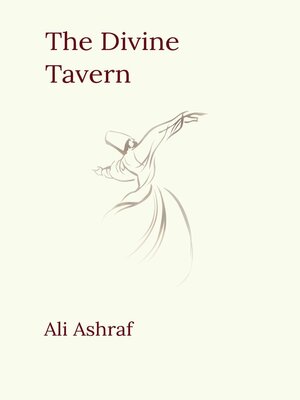
Sign up to save your library
With an OverDrive account, you can save your favorite libraries for at-a-glance information about availability. Find out more about OverDrive accounts.
Find this title in Libby, the library reading app by OverDrive.



Search for a digital library with this title
Title found at these libraries:
| Library Name | Distance |
|---|---|
| Loading... |
The Divine Tavern is a luminous collection of mystical poetry that traces the soul's journey through seven stages of spiritual awakening—from the intoxication of earthly beauty to the transcendent union of Sufi enlightenment. Each section of this book mirrors a phase of the seeker's path, blending raw emotion with philosophical depth, as the poet navigates love, loss, longing, and ultimate surrender to the Divine.
Written primarily in the first person, these poems pulse with the immediacy of lived experience, as if the reader is eavesdropping on whispered conversations between the soul and the Infinite. The verses echo the traditions of Rumi and Hafez while carving a distinct modern voice—one that wrestles with doubt, dances in ecstasy, and dissolves into the silence of truth.
Structure & Themes:
Style & Voice:
Why Read It?
For seekers who find dogma stifling but crave sacred connection, The Divine Tavern offers a map written in blood and starlight. It is for those who've tasted love's bitterness and still thirst for its ocean—who understand that the path to God is paved with brokenness and wonder alike.
Comparable to: The ecstatic poetry of Rumi, the rebellious wisdom of Kabir, and the contemporary mysticism of Daniel Ladinsky's Hafez translations—but with a voice unmistakably its own.
From Inside the Book:
"You talk well, O child of mine,
but you don't know the plan divine.
This world is a stage of yours and mine,
for which nature created opposites -
opposites to make this divine poem rhyme."
In The Divine Tavern, the poet becomes both pilgrim and tavernkeeper, serving verses like cups of intoxicating wine. Here, every heartache is a doorway, every silence a scripture. Through seven gates of fire and light, these poems guide readers to the paradoxical truth: that to find the Divine, we must first lose ourselves utterly.
A book to be read slowly—aloud, in whispers, under moonlight—until the words cease to be poems and become prayers.







